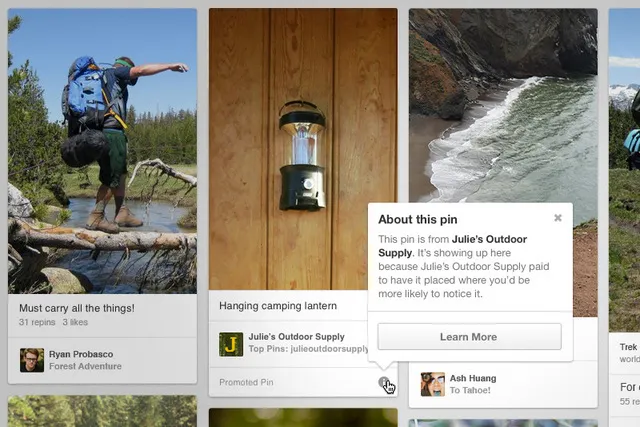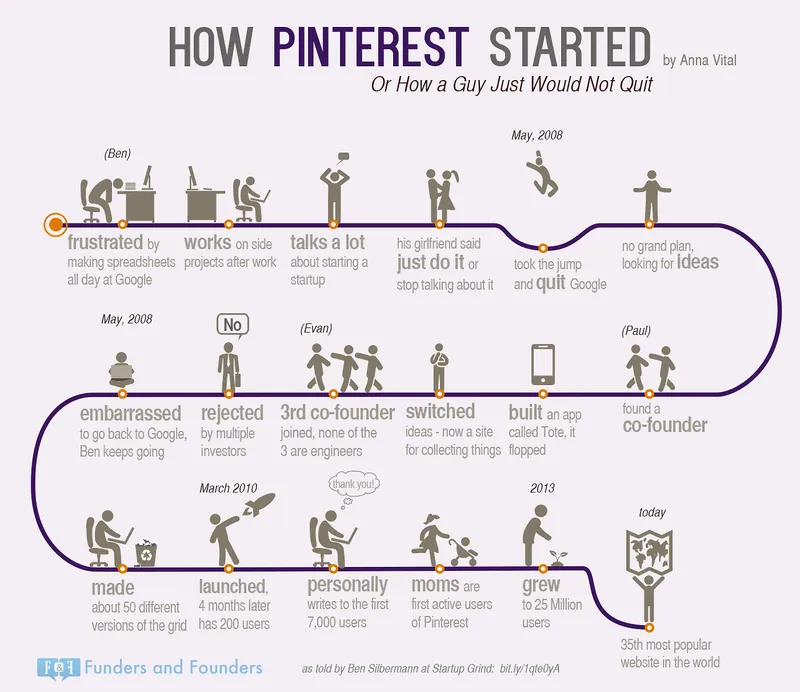With a $3.8 billion valuation, what is Pinterest’s endgame?
A few days ago, we saw Instagram’s plans for monetization using the sponsored photo stream from paying brands. A couple of days before that, Pinterest had confirmed raising USD 225 million in Series E funding, valuing them at USD 3.8 billion. The infographic below traces their funding and valuation journey over the past 3 years.

Pinterest has been slow to bring monetization to its community, taking its own time to perfect the design and test out variations that worked. They have also demonstrated a long term focus as shown by a few instances:
- They seeded the network with high quality, arty, creative users because they believed that the network’s culture would be defined by this initial set of core users
- They avoided any ‘gamification’ features even though that was the fad back in 2011
- They initially avoided posting photos directly from Facebook, to prevent Pinterest from becoming yet another photo sharing / photo album service
All of these resulted in Pinterest growing its user base slowly in its initial days but ensured that the focus of users remained firmly on ‘shareable’ content.
In fact, Pinterest has had such single-minded focus on design, user experience and strong sense of community, that even their copycat competitor sites Fancy and Polyvore were already generating revenues and were profitable back in June 2012. Fancy, for example, directly sold products and travel bookings and also offered an affiliate fee to its users who shared for-sale stuff, if the sale happened. That was generating an estimated $10,000 a day in revenue. Polyvore was taking a cut on sales that happened through referral on its site plus the usual advertising. Given Pinterest’s user base a year ago, rough calculations suggest that they could have been taking $1 million a day even then, but they chose to delay it.
In the days preceding their Series D funding in February 2013, Pinterest has been laying a strong foundation for monetization – and taking pains to inform potential investors about it. In March 2013, they released an analytics tool which tracks and informs a merchant on how their pictures are being shared across Pinterest and which images are sending back traffic to them. In May 2013, they introduced various types of pins (e.g., Product pins, Recipe pins, Movie pins etc.). In August 2013, they introduced price alerts on product pins, where a user would be notified if the price of a pin they were following dropped to a certain level. And finally, in September 2013, they introduced promoted pins from specific companies, but unlike Instagram, they are not charging any money from advertisers for this test drive. They have made sure add all of the best practices of targeted advertising by having tasteful promoted pins, which always carry a tag of being “Promoted”. Further, users get to let Pinterest know if they don’t like a certain promoted pin to increase relevance of ad targeting.

Our View
So what is Pinterest’s endgame?
- With the latest round valuing them at an estimated $3.8 billion, have they outpriced themselves from any acquisition and left themselves with only the IPO route?
- Are they achieving every marketer’s dream of reaching the right customer at the right place and time by making advertisements so relevant, timely and non-intrusive?
- How are they going to solve the copyright infringement issues where users might be pinning copyright protected photos after having signed the terms of use which makes the users liable for any lawsuits resulting thereof?
- Will Pinterest become the Mecca of only the tasteful, higher value products with a higher margin business on their hands, as opposed to the numbers game played by Facebook?
Here is an amazing infographic from Funders and Founders on "How Pinterest Started or How a Guy just would not quit "








